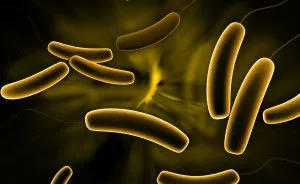
- Share on Facebook103
- Share on Pinterest
- Share on Twitter
Our gut bacteria can impact our lives in a huge variety of ways, many of which are likely still unknown. These microscopic communities which call our digestive tract home can affect how we feel, influence our nervous system, and even dictate our cravings for certain foods.
On top of this, a healthy, diverse balance of gut bacteria is absolutely essential to proper digestion, and to the optimal functionality of our immune system.
A new study performed at the University of Chicago Medical Center has uncovered yet another potential function of gut bacteria: a certain type, known as Clostridia, may help to prevent the development of food allergies, which affect approximately 15 million people across the US.
Symptoms of an allergic reaction to a given food can range from vomiting and abdominal pain, to hives to breathing difficulties. In severe cases, an allergic reaction can cause death if the person does not receive prompt medical attention.
For their study, the researchers worked with three groups of mice: a group with normal gut bacteria, a group that had been raised in a sterile environment, and therefore had no gut bacteria, and a group that had been treated with antibiotics soon after birth. When the mice were exposed to peanut allergens, both the sterile group and the group that had been given antibiotics had a stronger immune system reaction to the allergens than the normal gut bacteria control group.
When a “cocktail” of Clostridia bacteria was introduced into the systems of the mice by the researchers, the mice – which before had been highly sensitive to the allergens – became increasingly desensitized to them, and the immunological response of the mice to the allergens decreased.
According to senior author Cathryn Nagler, PhD, “we’ve identified a bacterial population that protects against food allergen sensitization. The first step in getting sensitized to a food allergen is for it to get into your blood and be presented to your immune system. The presence of these bacteria regulates that process.”
 Nagler adds, “it’s exciting because we know what the bacteria are; we have a way to intervene. There are of course no guarantees, but this is absolutely testable as a therapeutic against a disease for which there’s nothing. As a mom, I can imagine how frightening it must be to worry every time your child takes a bite of food.”
Nagler adds, “it’s exciting because we know what the bacteria are; we have a way to intervene. There are of course no guarantees, but this is absolutely testable as a therapeutic against a disease for which there’s nothing. As a mom, I can imagine how frightening it must be to worry every time your child takes a bite of food.”
While a lot more research on the relationship between Clostridia and food allergies has yet to be performed, this study marks a groundbreaking step in tackling this dangerous and prevalent issue.
-The Alternative Daily
Sources:
http://www.uchospitals.edu/news/2014/20140825-nagler.html
http://articles.mercola.com/sites/articles/archive/2014/09/10/gut-bacteria-protect-against-food-allergies.aspx
http://www.webmd.com/allergies/guide/food-allergy-intolerances
https://www.thealternativedaily.com/food-choices-may-influenced-type-bacteria-gut
https://www.thealternativedaily.com/feeling-anxious-gut-may-reason
- Share on Facebook103
- Share on Pinterest
- Share on Twitter

